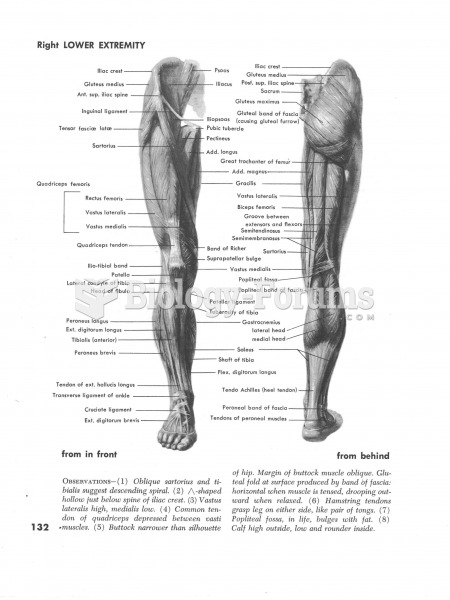|
|
|
The strongest synthetic topical retinoid drug available, tazarotene, is used to treat sun-damaged skin, acne, and psoriasis.
Many supplement containers do not even contain what their labels say. There are many documented reports of products containing much less, or more, that what is listed on their labels. They may also contain undisclosed prescription drugs and even contaminants.
As the western states of America were settled, pioneers often had to drink rancid water from ponds and other sources. This often resulted in chronic diarrhea, causing many cases of dehydration and death that could have been avoided if clean water had been available.
Vaccines prevent between 2.5 and 4 million deaths every year.
Vital signs (blood pressure, temperature, pulse rate, respiration rate) should be taken before any drug administration. Patients should be informed not to use tobacco or caffeine at least 30 minutes before their appointment.
 Lungs: RUL = Right Upper Lobe, RML = Right Middle Lobe, RLL = Right Lower Lobe, LUL = Left Upper Lob
Lungs: RUL = Right Upper Lobe, RML = Right Middle Lobe, RLL = Right Lower Lobe, LUL = Left Upper Lob
 Two general models for the interconversion of inactive and active forms of a protein during cooperat
Two general models for the interconversion of inactive and active forms of a protein during cooperat
 In a developmental systems approach, the emergence of social smiling at 6 to 8 weeks of age is not ...
In a developmental systems approach, the emergence of social smiling at 6 to 8 weeks of age is not ...




